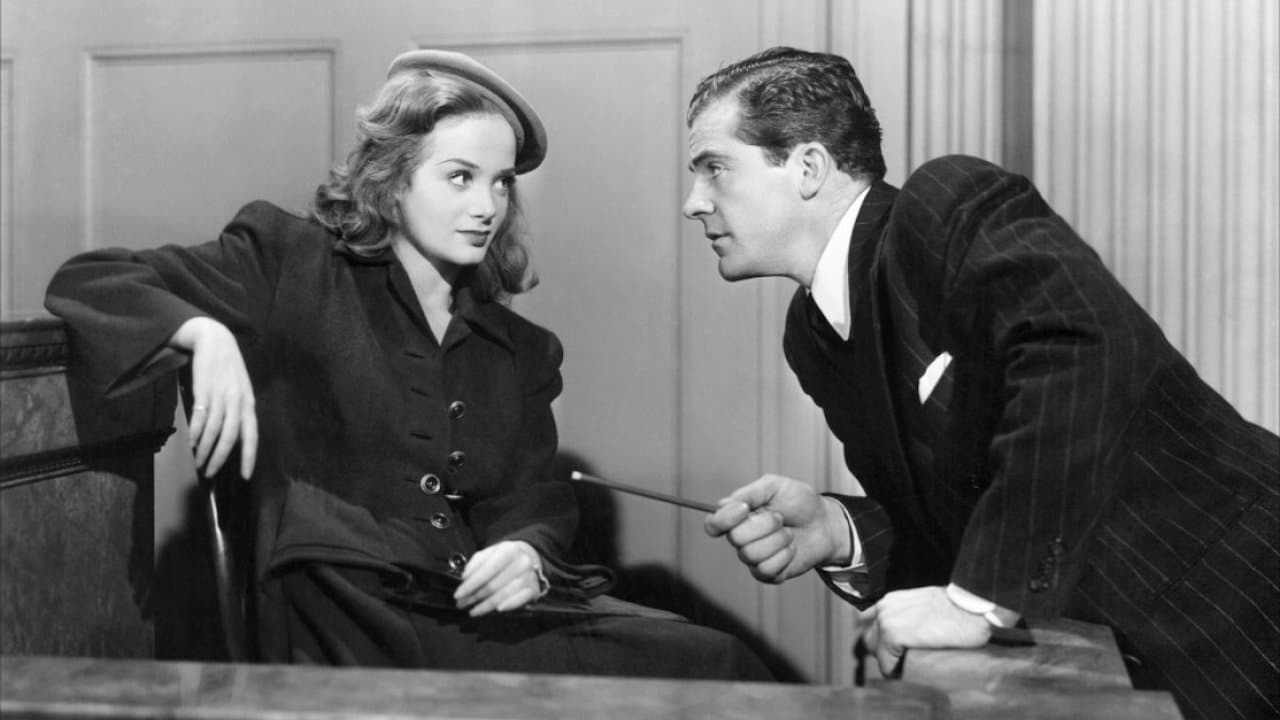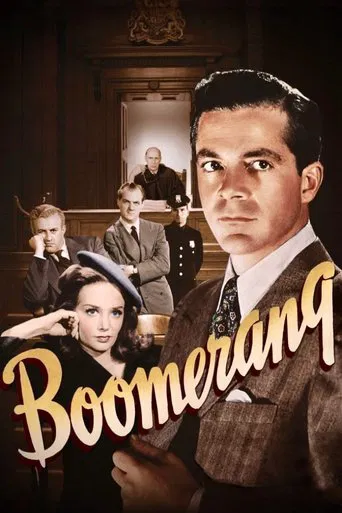

This was Kazan's third credited movie, his first film noir, and the first time he was able to film totally on location (nothing was filmed in the studio). This was a new experience for Kazan since he started out at a play director in the 30s and 40s and then made his first two movies, A Tree Grows in Brooklyn (1945) and The Sea of Grass (1947), totally in a movie studio. The DVD that I have is one of those 20th Century Fox noir movies with a commentary track. In the commentary, they call this movie a 'docunoir' meaning, I suppose, that it is a noir-ish docudrama based on a true story. Although the events depicted in this movie took place in Bridgeport, Connecticut, it was actually filmed in Stamford, Connecticut. So, when you see one of the panels of the opening credits say, 'The story you are about to witness is based on fact. In the interests of authenticity, all scenes, both interior and exterior, have been photographed in the original locale and as many actual characters as possible have been used,' you have to take it with a grain of salt. Nevertheless, other than the main characters, local people who were non- actors, did most of the other parts. For me, this makes the movie more authentic and seems to represent sort of an 'American neorealism' that may have been influenced by the films being made in Europe about the same time.As the movie opens, we see the murder of one of the town's most beloved citizens, its Episcopal minister, Father Lambert. He is murdered on Main Street in the early evening in front of several people. The people of the town are shocked and want to find the murderer and bring him to a swift justice. Police Chief Robinson (Lee J. Cobb) and his assistant, Detective Lieutenant White (Karl Malden), feel the ripple effect of the town's shock as does the State's Attorney, Henry Harvey (Dana Andrews), and his wife, Madge (Jane Wyatt). Of course, the local newspaper, 'The Morning Record,' and its reporter, Dave Woods (Same Levine), fans the flames of public outrage.Soon, local politics and politicians get involved and corruption is unveiled for us to see: The commissioner of Pubic Works (Ed Begley) desperately wants to see a murderer caught and convicted since his new recreation center depends on its quick resolution. And, as we find out later, his political and personal financial positions are duplicitous and, therefore, corrupt.As the local newspaper and political machine continue to fuel the public fires of the unsolved case, people start to form quasi-vigilante groups to find the murderer. Finally, the police find a possible suspect, John Waldron (Arthur Kennedy), in Ohio. The circumstantial evidence against him is the timing of his exit from town; the fact that he dresses like the murderer (dark coat and light hat), has a medium build, and owns a .38 caliber pistol. Waldron is placed in several police lineups and is constantly recognized by witnesses from the scene of the crime. After several non-stop hours of 'aggressive' questioning by police, he signs a confession.Justice is swift at the Coroner's Inquest. However, when the case is examined at the State Superior Court, State's Attorney, Henry Harvey has some doubts about Waldron's guilt and more actively pursues old leads with his staff. As attention is shifted to Harvey, members of the Reform Party machine both threaten him and promise him the governorship. The movie ends with a good courtroom drama. The movie's epilogue is equally interesting!I highly recommend this crime drama based on an actual case and taken from a Reader's Digest article. It may have been overlooked because Kazan's Gentleman's Agreement was the movie to see in 1947. However, I think this is one of those great crime documentaries like Call Northside 777 (1948) and Mystery Street (1950).
... View MoreThe real-life unsolved murder of a popular priest in Bridgeport, Connecticut, provides the factual basis for this intriguing crime drama in which political corruption, dubious police practices and outrageous abuses of power, figure strongly. In typical docu-noir style, most of the action is filmed on location with non-professional actors filling the supporting roles and an authoritative newsreel-style narration providing important background information. The overall mood of the piece is rather uneasy and becomes increasingly tense as the stakes get higher and the trial of the prime suspect approaches.After the brutal murder of Bridgeport's local priest, State Attorney Henry L Harvey (Dana Andrews) and local Police Chief Robbie Robinson (Lee J Cobb) come under immediate pressure to find the culprit and bring him to justice. As the days pass and the police investigation fails to identify a suspect, the criticism from the local newspaper, the public and local politicians becomes increasingly intense. A breakthrough then seems to be made when a man, fitting the description of the killer, is located and brought in for questioning. The circumstantial evidence against unemployed ex-G.I. John Waldron (Arthur Kennedy) seems compelling and so when he provides a confession, the case appears to have been solved. A problem arises however, when Harvey starts to have doubts about Waldron's guilt and realises that if he doesn't forcefully pursue a conviction, he will have to face the opposition of everyone in Bridgeport and also risk his own career in the process.What becomes most apparent from the situation is that everyone in the locality is so driven by self-interest or a need for revenge that they're totally unconcerned about the pursuit of justice or the fate of the World War 11 veteran who could possibly be innocent. The proprietor of the local newspaper (an opponent of the ruling Reform Party) had accused the police department of incompetence and added fuel to the public's sense of outrage in the early stages of the investigation because an election was looming. Similarly, in order to try to ensure victory at the upcoming election, the Mayor made it clear to Harvey that a conviction would make it a certainty that he'd achieve his long-held ambition to become the State Governor.Another Reform Party official, Paul Harris (Ed Begley), is the owner of a company that owns some land which the current administration is due to purchase for the creation of a recreation area. If his party don't get re-elected, he knows the project will be abandoned and he will be financially ruined. He therefore puts pressure on Harvey to smooth the Party's way back into power by getting a conviction and adds that if Harvey doesn't comply, he will expose the fact that Harvey's wife Madge (Jane Wyatt) had lent him some money for the project and make her appear to be corrupt.When the police interviewed Waldron, they denied him access to a lawyer and after considering beating a confession out of him went on to achieve their objective by using sleep deprivation instead. The public need for revenge had become so intense that they'd moved into lynch-mob mode and the various witnesses in the case also became willing to perjure themselves in order to ensure that someone paid heavily for the death of the priest.The movie's opening narration emphasises how typical Bridgeport is of towns all over the United States and no doubt, this must've provided some food for thought amongst audiences at the time of the movie's original release. "Boomerang!" is an intelligent movie that's well made and contains an array of fine performances, most notably by Lee J Cobb, Arthur Kennedy and Dana Andrews who looks convincingly stoical as he tries to ensure that justice is done in extremely difficult circumstances.
... View MoreAlthough the real event the film is based on takes place after WWI, the setting around 1945 does a fine job of conveying the essence of the story. Using locations rather than sets in most cases added to the authenticity of the drama. Not "Noir" enough, the harsh lighting attempted on some of the indoor scenes added little effect. The hysteria of the public was overly characterized and the brutality of the police (although close to the truth) could have been much more dramatic.When the DA thoughtlessly opens a book conveniently placed on a side table and reads a guide to behavior, I laughed at the sentimentality.Over all, the film does an excellent job of telling current viewers about the culture of the 1950s. Political power, police ineptness, the position of women, even the unspeakable (what was it the priest could not forgive?). As a morality play, the concept of any doubt of guilt (and hence - innocence) is well established.As for the acting, my vote goes for Jane Wyatt. The newspaper man, Sam Levene (hammering away at the typewriter with two fingers) also had a redeeming quality and humor. The others in most cases were at times either too deadpan or consistently over acted (the wealthy businessman for example).
... View MoreThis is a very powerful film. Dana Andrews is at his best here, and I always thought it sad that despite some very good movie roles that he never made it to the upper echelon of acting. Perhaps that was due to his alcoholism.As is made evident in the film, it is based on a true story from 1924 Connecticut, when a priest, walking along a street at night, is shot in the head. A vagrant and discharged soldier with emotional problems in indicted for the murder, but only after the case lags and the local government is skewered by the press and the citizenry. So once a suspect is found and arrested, there is a rush to judgment. However, the local district attorney -- and later Attorney General of the U.S. under FDR -- doesn't believe the man in guilty. Through an interesting courtroom segment, the man is found not guilty.Elia Kazan does a bang-up job directing here, but, unfortunately, with the film being shot on location (although in a different community from where the events actually took place), production values are not high. It's interesting to see the lovely Jane Wyatt, although her part is of passing interest (as Andrews wife). Lee J. Cobb (as a detective) and Arthur Kennedy (as the suspect) are never favorites of mine, but both turn in very good performances here, as due Karl Malden (another police officer) and Ed Begley (as a shady local politician).If I were into crime dramas more, this would probably find a place on my DVD shelf, but I'll settle for occasionally watching it on TCM. And, make no mistake, this one is definitely worth watching.
... View More